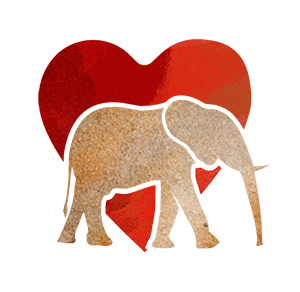We received a report from KWS on the 2nd January 2020 about an orphaned baby elephant whose mum had died the previous night in the Masai Mara. Scouts from the Mara Elephant Project (MEP) had been monitoring her and her baby for a few days prior to her passing, concerned by her poor condition. She died overnight on the 1st January, but the reasons for her death remain unclear as sadly an autopsy was not possible given that not much of her was left after predators had their fill that night. The decision was made to rescue the young baby, who at approximately six months old could simply not survive without her mother’s milk or protection from the very same predators.
KWS Veterinary officer Isaac Lekelol was mobilised to travel down with the SWT Keepers in the rescue plane to facilitate the rescue. In the meantime MEP rangers were keeping an eye on the calf until the team arrived. The plane flew directly into the Mara North Conservancy airstrip which was about thirty minutes from the vulnerable calf, who was thankfully in the company of another adult female elephant and her calf who were providing valuable protection from predators. The rescue team were met by MEP and KWS rangers and transported to orphan's location; because of the late hour and the fact that the calf had gone almost 24 hours without any milk, it was important the rescue happened that day. Despite being in the company of the other female she had not been allowed access to her breast milk and this is not unusual as baby elephants are very greedy feeders so a mother will not compromise her calf own calf for another.
Thankfully it did not take long to safely capture the baby and this was done safely by sedating the protective adult female so that the ground teams could move in to capture and restrain the orphaned baby who was much smaller than the female’s own calf, and then immediately set about preparing her for the journey in the back of a land cruiser to the airfield, and the onward flight to Nairobi. The baby was given a tranquilliser to manage stress levels and no time was wasted because it was literally last light.
The flight arrived into Nairobi’s Wilson airfield at 7.45pm and the calf was transported to the Nursery, arriving close to 9 o’clock at the SWT Nursery. She was placed in a stable that had been especially prepared for her arrival. Thankfully it didn’t take long for her to latch onto a bottle of milk as once she knew where the milk was coming from she was happy to feed. Although she remained very wary of the Keepers, her desire for milk outweighed her fear and she developed a cunning stretch for her milk; while maintaining some distance from the Keeper she could still latch onto the teat. She also feasted on the freshly cut greenery hanging in her stable, but despite feeding well, the horrors of her ordeal plagued her and it was a very restless night for all.
By the next day she was clearly exhausted and while she remained confined in her stable she found time to lie down and sleep. When awake she sensed the other elephants in the Nursery and constantly cried out while pacing up and down her stable, so the decision was made to let her out into the forest with the other Nursery orphans early, despite her being just one day in the Nursery fold. We knew the other orphans who have all gone through similar experiences would work their magic in calming and comforting this little baby - and so it was. She immediately settled and was certainly not short of adoring attentive mini-mums who crowded around her taking care of her every whim. She was with the visiting public that same day, happy to be glued to the sides of Tagwa, Tamiyoi and Maisha - with Larro and Kiasa trying to mother her as well whenever they got a look in. As the days passed she settled down more and grew used to the Keepers as well.




















